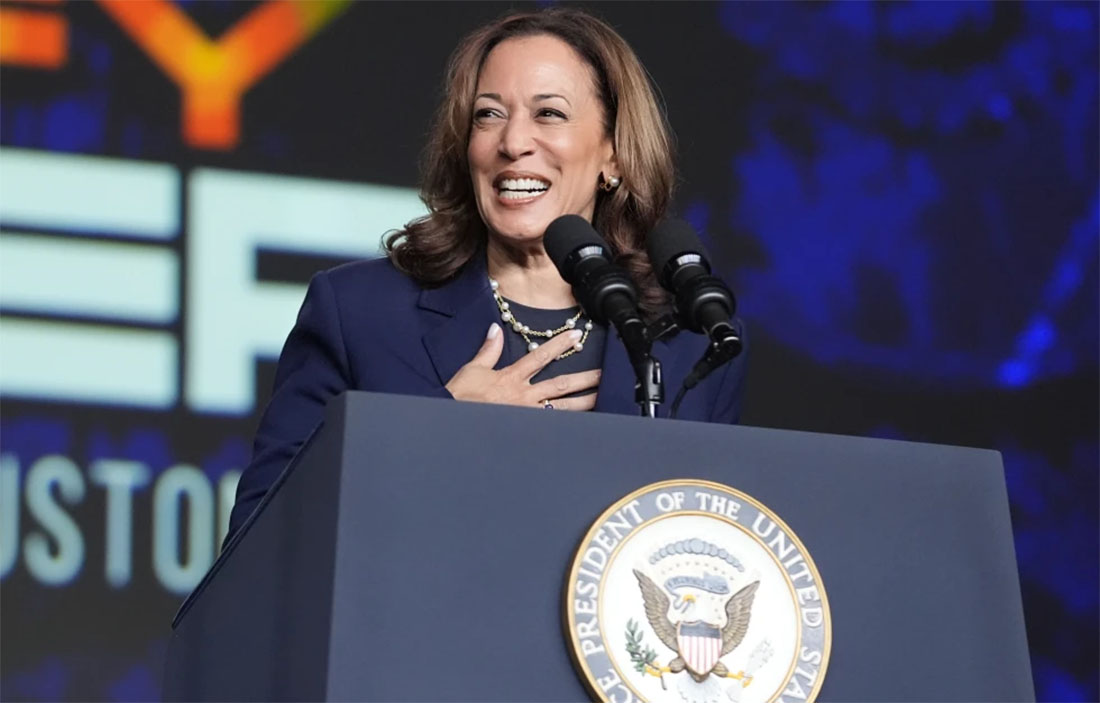
Photo Credit: Getty Images
With inflation and high grocery prices still frustrating many voters, Vice President Kamala Harris on Friday proposed a ban on “price gouging” by food suppliers and grocery stores, as part of a broader agenda aimed at lowering the cost of housing, medicine, and food.
It’s an attempt to tackle a clear vulnerability of Harris’ head-on: Under the Biden-Harris administration, grocery prices have shot up 21%, part of an inflation surge that has raised overall costs by about 19% and soured many Americans on the economy, even as unemployment fell to historic lows. Wages have also risen sharply since the pandemic, and have outpaced prices for more than a year. Still, surveys find Americans continue to struggle with higher costs.
“We all know that prices went up during the pandemic when the supply chains shut down and failed,” Harris said Friday in Raleigh, North Carolina. “But our supply chains have now improved and prices are still too high.”
Will her proposals do much to lower prices? And what even is “price gouging”? The answers to those and other questions are below:
What is price gouging?
There is no strict definition that economists would agree on, but it generally refers to spikes in prices that typically follow a disruption in supply, such as after a hurricane or other natural disaster. Consumer advocates charge that gouging occurs when retailers sharply increase prices, particularly for necessities, under such circumstances.
Is it already illegal?
Several states already restrict price gouging, but there is no federal-level ban.
There are federal restrictions on related but different practices, such as price-fixing laws that bar companies from agreeing to not compete against each other and set higher prices.
Will Harris’ proposal lower grocery prices?
Most economists would say no, though her plan could have an impact on future crises. For one thing, it’s unclear how much price gouging is going on right now.
Grocery prices are still painfully high compared to four years ago, but they increased just 1.1% in July compared with a year earlier, according to the most recent inflation report. That is in line with pre-pandemic increases.
















